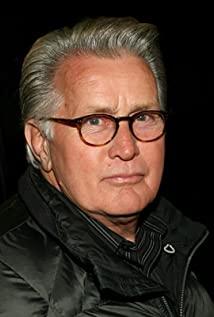https://en.wikipedia.org/wiki/Murder_of_Betty_Van_Patter
Betty-Louise-Van-Pat (October 12, 1929 - around December 13, 1974 [body found on January 17, 1975],), [1][2] was the bookkeeper of the Black Panther Party member, although she herself is white.
The 45-year-old's body was found five weeks after her disappearance. She was beaten to death. Some sources suggest she was sexually assaulted. While no one has been charged with the crime, many believe members of the party are responsible. She has reportedly threatened to go public with her discovery that the party had falsified accounts and had major tax problems.
After working as a bookkeeper for Ramparts magazine, Van Patt became an assistant to Black Panther leader Elaine Brown in 1974 under David Horowitz's introduction.
Van Peet disappeared on December 13, 1974. A few weeks later, her severely beaten body was found on the beach in San Francisco Bay. Frank Browning wrote in 1987: "The police do not have enough evidence to charge anyone responsible for Van Pat's death, but the Black Panther party" is almost universally regarded as responsible. "[5] According to other authors, Huey Newton allegedly confessed to a friend that he ordered the murder of Van Pat, who was tortured and sexually assaulted before he was killed."[6] [7] Christopher Hitchens wrote in the Los Angeles Times in 2003. "There is little doubt now, and little doubt at the time, of the Black Panther leadership's complicity in this repugnant crime"[8]. "While it is true that I have come to dislike Betty Van Pat, I have fired her, not killed her," Elaine Brown wrote in 1993. Brown said that Van Pat was fired because she was too meddling with the Black Panther Party to be of no use to the party [3].
- Ancestry.com, US, Find A Grave Index, 1600s-Current [database on-line] , archived from the original on April 27, 2017, retrieved April 26, 2017
- ^ Ancestry.com, California Birth Index, 1905-1995 [database on-line] , retrieved April 26, 2017
- ^ Jump up to: a b Bender, Kristin (January 15, 2007). "Mother's slaying fuels daughter's devotion" . Oakland Tribune . Archived from the original on January 10, 2016. Retrieved July 27, 2015.
- ^ "Who killed Betty Van Patter?" Archived 2015-12-22 at the Wayback Machine , December 13, 1999; accessed March 15, 2015.
- ^ "The Strange Journey of David Horowitz" Archived 2016-01-28 at the Wayback Machine , Mother Jones Magazine , May 1987, p. 34 (on Google books )
- ^ Kelley, Ken. September 15, 1989. "Huey Newton: I'll Never Forget". East Bay Express , Volume 11, No. 49. https://archive.org/details/Huey-Never-Forget-1989
- ^ Pearson, Hugh (1994). The Shadow of the Panther: Huey Newton and the Price of Black Power in America . De Capo Press. p.328. I SBN 0-201-48341-6 .
- ^ "Left-leaving, left-leaning" Archived 2016-06-30 at the Wayback Machine , Christopher Hitchens, Los Angeles Times , November 16, 2003.
In 1968, Brown joined the Black Panther Party and became an ordinary party member, studying revolutionary literature, selling Black Panther Party newspapers, and cleaning guns. She soon helped establish the party's first free children's breakfast program in Los Angeles, as well as the party's original free bus tours program and free legal aid program[8].
In 1968, Brown was commissioned by David Hilliard to record a song for her, a request that led to the album Seize the Time. She eventually served as editor of the Black Panther publication, the southern California chapter of the party. In 1971, Brown became a member of the party's central committee as information minister, replacing Eldridge-Cleaver, who had been expelled. In 1973, Brown was commissioned by Black Panther founder Huey-P-Newton to record more songs. These songs formed the album Until We're Free.
As part of Newton's directive, Brown ran unsuccessfully for 30 percent of the vote for Oakland City Council in 1973. She ran again in 1975 and lost again with 44% of the vote.[7] When Newton fled to Cuba in 1974 to avoid criminal charges, he appointed Brown to lead the Black Panther Party. Brown is the only woman to do so. She was president of the Black Panther Party from 1974 to 1977. She wrote about the experience in her 1992 memoir, A Taste of Power.
"A woman in the black power movement is seen as irrelevant at best. A woman who insists on herself is a pariah. If a black woman takes a leadership role, she is said to be eroding black masculinity and is hinders the progress of the black race. She is the enemy of black people....[9] I knew I had to come up with something strong to run the Black Panther Party."[10] She dealt with recurring sexism because men were a The thought of taking orders from a woman makes you angry.
During Brown's leadership of the Black Panther Party, she focused on electoral politics and community service. In 1977, she ran Lionel Wilson's victorious campaign to become Oakland's first black mayor[8]. In addition, Brown also founded the Black Panther Liberation School, which is recognized as a model school by California [11].
Brown stepped down as president of the Black Panther Party less than a year after Newton returned from Cuba in 1977, when Newton refused to condemn the beating of Regina Davis, an administrator at the Black Panther Liberation School. Other male members of the party beat her, breaking her jaw, as she reprimanded a colleague for failing to complete her mission. [12], Newton chose to show solidarity with these people. This incident was the time when Brown could no longer stand the sexism and patriarchy of the Black Panther Party.[13] She left Oakland with her daughter Erica and moved to Los Angeles.
7 "Brown, Elaine (1943- ) | The Black Past: Remembered and Reclaimed" . The Black Past. Retrieved 2010-08-27.
8^ Jump up to: a b c d "More About Elaine" . Elaine Brown. Archived from the original on 2010-11-28. Retrieved 2010-08-27.
9 ^ Spencer, Robyn C. "ENGENDERING THE BLACK FREEDOM STRUGGLE: Revolutionary Black Womanhood and the Black Panther Party in the Bay Area, California." Journal of Women's History, vol. 20, no. 1, 2008, pp. 90-113 .
10 ^ Brown, Elaine. A Taste of Power: A Black Woman's Story (New York: Doubleday, 1992), p.357
11 ^ https://thetransmetropolitanreview.wordpress.com/2019/03/02/a-complete-idiots-guide-to-us-and-russian-meddling/
12 "Voices of Color—Invisible Women: Sexism in the Black Panther Party - www.socialism.com" .
13 ^ Brown, Elaine. A Taste of Power: A Black Woman's Story (New York: Doubleday, 1992), p.444
View more about Judas and the Black Messiah reviews











